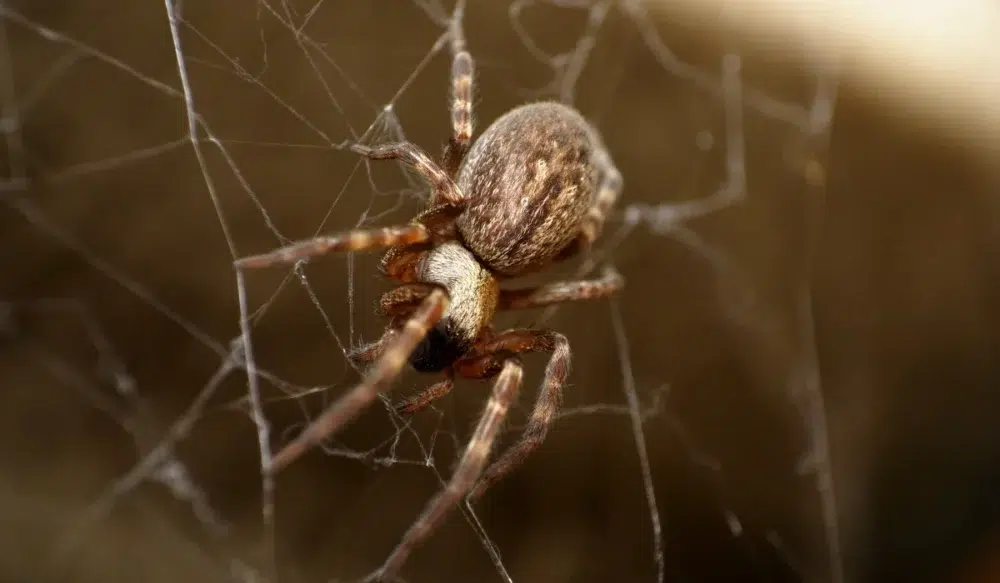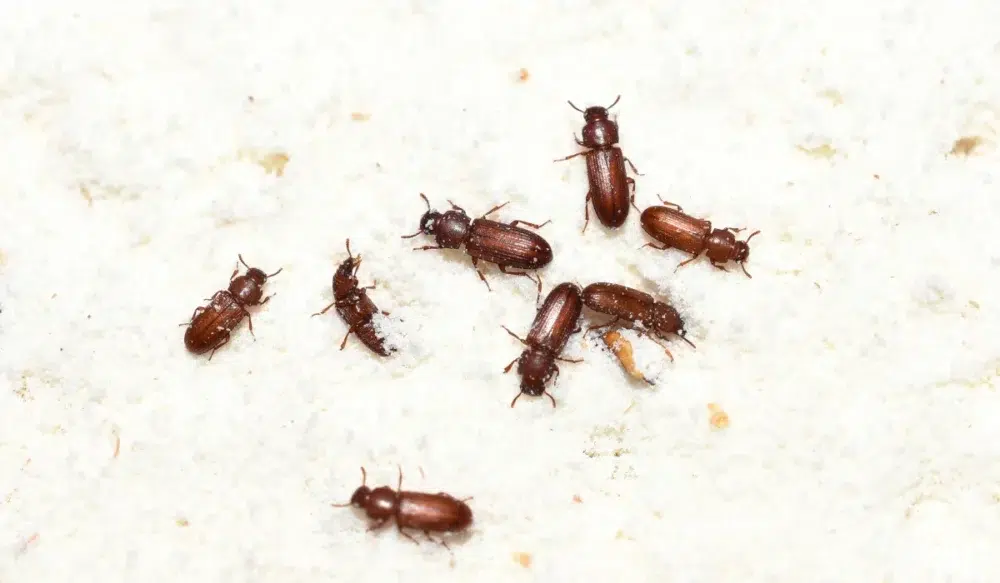Are you tired of battling pesky mosquitoes in Phoenix? Look no further. In this ultimate guide, we unveil effective strategies and insightful tips for conquering these parasitic pests and regaining control of your property. From exploring the ins and outs of to uncovering the secrets of successful mosquito control, we cover it all.
Mosquitoes are a common nuisance in Phoenix and can quickly turn outdoor activities into unbearable experiences. Not only do they inflict itchy bites, but they can also transmit serious diseases such as West Nile virus and Zika virus. That’s why it’s crucial to equip yourself with the knowledge and tools to combat these relentless insects.
In this guide, we will delve into the best practices for pest control, with a specific focus on . From understanding mosquito behavior to prevention measures, we will walk you through a range of practical tips and tricks to help you create a mosquito-free haven on your property.
Whether you’re a homeowner, renter, or business owner, this ultimate guide will empower you with valuable insights into mosquito control, allowing you to reclaim your outdoor space and enjoy the beautiful Phoenix weather without constant irritation.
Join us as we embark on a journey to eradicate mosquitoes and transform your property into a mosquito-free oasis. Let’s dive into the fascinating world of pest control in Phoenix and discover the secrets to effective mosquito control.
Understanding Mosquito Behavior: The First Step To Mosquito-Proofing
To effectively combat mosquitoes and create a mosquito-free environment in your house, it’s vital to understand their behavior and habits. By gaining insight into their preferences and tendencies, you can take targeted actions to eliminate their presence. In this section, we will explore the intricacies of mosquito behavior and provide practical tips to help you and around your property.
Mosquitoes are attracted to several key factors, including standing water, warmth, and the scent of carbon dioxide emitted by humans and animals. Female mosquitoes, in particular, require a blood meal to nourish their eggs, making humans and animals their preferred targets.
One of the first steps in mosquito-proofing your house is to eliminate any potential breeding grounds. Mosquitoes lay their eggs in stagnant water, such as puddles, flowerpots, birdbaths, and clogged gutters. Regularly inspect your property for areas where water accumulates and take steps to remove or treat them. Ensure that gutters are clean and free of debris, and fix any leaks or dripping faucets that could create standing water.
Another effective strategy is to minimize mosquito entry points into your house. Install screens on windows and doors to from infiltrating your living space. Additionally, seal any gaps or cracks in walls or foundations that may serve as entry points for mosquitoes.
To further discourage mosquitoes from entering your house, consider using window and door weatherstripping to create a tight seal. This prevention method keeps mosquitoes out and helps with energy efficiency.
Mosquitoes are attracted to certain scents and odors. You can minimize their attraction by not wearing heavily scented perfumes, lotions, or colognes, especially when spending time outdoors. You can also repel mosquitoes by using insect repellents containing ingredients like DEET, picaridin, or oil of lemon eucalyptus.
Another way to dissuade mosquitoes is to make use of mosquito traps or electronic mosquito-repellent devices. These tools can help reduce the mosquito population by attracting and trapping or repelling them.
Lastly, consider employing natural mosquito control methods, such as introducing mosquito-eating fish, like guppies or minnows, into outdoor water features or ponds. These fish feed on mosquito larvae, effectively reducing their numbers.
Understanding mosquito behavior is the foundation for effective mosquito control. By eliminating breeding sites, sealing entry points, and implementing preventive measures, you can significantly reduce the number of mosquitoes around your property.
In conclusion, to get rid of mosquitoes around your house, it is essential to comprehend their behavior and implement targeted strategies accordingly. By following the tips outlined in this section, you can create a home environment that is less attractive to mosquitoes and take proactive measures to keep them at bay.
In the next section of our ultimate guide to mosquito control, we will explore mosquito-borne diseases and how they pose a danger to humans and pets.
Mosquito-Borne Diseases: How These Insects Pose A Serious Danger
Mosquitoes are not just irritating pests that can bite us non-stop, but they’re also carriers of numerous diseases. Their ability to transmit pathogens to humans and animals makes them a serious health concern worldwide.
Understanding the risks associated with mosquito-borne diseases is crucial in implementing effective prevention and control measures. In this section, we will explore the various diseases transmitted by and highlight the importance of protecting against these potential threats.
Different species of mosquitoes have distinct preferences for hosts and habitats, resulting in the transmission of various diseases. One of the most notorious culprits is the Aedes mosquito, which is responsible for spreading diseases such as dengue fever, Zika virus, and chikungunya. These mosquitoes are common in tropical and subtropical regions but can also thrive in urban areas with favorable breeding conditions.
Dengue fever, characterized by high fever, severe joint, and muscle pain, and rash, affects millions of people each year. In some cases, it can lead to a severe form called dengue hemorrhagic fever, which can be life-threatening. The Zika virus gained global attention in recent years due to its association with birth defects, particularly microcephaly, in infants born to infected mothers. Chikungunya causes debilitating joint pain and fever, often resulting in long-lasting symptoms.
Another group of mosquitoes, primarily the Anopheles species, can transmit malaria. Malaria remains one of the most significant mosquito-borne diseases worldwide, particularly in sub-Saharan Africa. It can cause high fever, chills, and flu-like symptoms. If left untreated, malaria can be fatal.
West Nile virus, primarily transmitted by Culex mosquitoes, is a concern in many parts of the world, including North America, Europe, and Asia. While most people infected with West Nile virus do not develop symptoms, some may experience fever, headache, body aches, and, in rare cases, severe neurological complications.
requires a multi-faceted approach. Eliminating mosquito breeding sites by reducing standing water is crucial. Regularly emptying and cleaning containers like flowerpots, birdbaths, and gutters can significantly reduce mosquito populations. Wearing protective clothing, using insect repellents, and sleeping under bed nets in high-risk areas are also recommended preventive measures.
Community efforts such as insecticide spraying, larvae control, and public health education play a vital role in mitigating the impact of mosquito-borne diseases. Vaccines are available for some diseases like yellow fever and Japanese encephalitis, highlighting the importance of immunization in high-risk regions.
In conclusion, understanding the risks associated with different mosquito species and the diseases they transmit is essential to public health. By practicing effective mosquito control techniques, raising awareness, and promoting preventive practices, we can reduce the incidence of mosquito-borne diseases and protect ourselves and our communities from these serious health threats. Stay informed, stay protected, and stay vigilant against mosquitoes and the diseases they carry.
The Key To Mosquito Control: Proactive Measures For Prevention
When it comes to mosquito control, prevention is the most effective strategy. You can significantly reduce their presence and protect yourself from their bites by taking proactive measures to repel mosquitoes and create an inhospitable environment for them.
In this section, we will explore a range of proactive measures for mosquito prevention. Here are some key proactive measures you can take to prevent mosquitoes from invading your space:
- Eliminate standing water: Mosquitoes breed in stagnant water, so removing any standing water sources around your property is crucial. Empty and clean birdbaths, flowerpots, pet bowls, and other containers regularly. Be sure to clean and drain gutters regularly. Fix any leaky faucets or outdoor pipes to prevent water accumulation.
- Maintain your outdoor space: Trim shrubs and grass regularly, as mosquitoes tend to rest in shady areas during the day. Remove any piles of leaves or debris that could serve as hiding places for mosquitoes.
- Use screens and seal entry points: Install window and door screens to prevent mosquitoes from entering your home. Check for any gaps or openings in windows, doors, and walls, and seal them properly.
- Wear appropriate clothing: Cover your skin with long-sleeved shirts, long pants, and socks when outdoors, especially during mosquito-active hours. Light-colored clothing can also help deter mosquitoes.
- Utilize mosquito repellents: Apply mosquito repellents to exposed skin and clothing. Some beneficial ingredients to look out for in commercial repellents include DEET, picaridin, and lemon eucalyptus. For a , consider using some of the best essential oils known to repel mosquitoes.
The following essential oils have shown promise in repelling mosquitoes:
- Citronella: Known for its strong scent, citronella oil masks the odor that attracts mosquitoes.
- Lavender: Apart from its pleasant aroma, lavender oil possesses mosquito-repellent properties.
- Peppermint: The strong scent of peppermint oil can deter mosquitoes and provide a cooling sensation.
- Eucalyptus: Oil derived from eucalyptus leaves contains compounds that repel mosquitoes effectively.
- Lemongrass: Lemongrass oil has a strong fragrance that mosquitoes find unpleasant.
To use essential oils as mosquito repellents, dilute a few drops in a carrier oil, such as coconut or jojoba oil, and apply them to your skin or clothing. Alternatively, you can create a DIY mosquito repellent spray by combining the essential oil of your choice with water and a small amount of alcohol or witch hazel.
It is important to note that while essential oils can be effective at repelling mosquitoes, their effectiveness and duration may vary. Reapplication may be necessary, especially if you are sweating or spending an extended period outdoors.
In conclusion, prevention is key when it comes to mosquito control. By following proactive measures such as eliminating standing water, maintaining your outdoor space, using screens and repellents, and incorporating the best essential oils to repel mosquitoes, you can significantly lessen the presence of these bothersome insects and enjoy a mosquito-free environment.
Total Mosquito Control: How Professionals Ensure Long-Lasting Results
While proactive measures and DIY solutions can go a long way in controlling mosquitoes, sometimes it’s necessary to seek the expertise of professionals to achieve comprehensive and long-lasting results. At Green Home Pest Control, we specialize in providing effective solutions tailored to specific mosquito control needs.
In this section, we will explore how professionals ensure total mosquito control and discuss some other things that can help repel mosquitoes.
- Thorough inspection: Professional mosquito control experts thoroughly inspect your property to identify potential breeding sites, entry points, and areas where mosquitoes may be hiding. This assessment helps them develop a targeted and customized treatment plan.
- Targeted treatments: Pest control professionals employ a range of methods to treat mosquito populations, including the targeted application of larvicides to eliminate mosquito larvae in standing water and using residual insecticides to treat resting areas where adult mosquitoes reside.
- Source reduction: Professionals focus on eliminating breeding sites and potential mosquito habitats to reduce the population. This step involves identifying and addressing areas of standing water, such as ponds, puddles, and other water sources, to prevent mosquito reproduction.
- Integrated Pest Management (IPM) approach: Professionals often utilize an IPM approach, which combines multiple strategies for effective mosquito control. IPM may include implementing physical barriers, using biological controls like mosquito-eating fish, and promoting education and preventive measures to clients.
In conclusion, total mosquito control requires a combination of professional expertise and proactive measures. Investing in professional pest control services at Green Home Pest Control is a smart decision.
We offer customized treatments and utilize effective strategies to eliminate mosquitoes the right way. Supplementing these efforts with source reduction and using things that repel mosquitoes, such as fans and repellent products, can enhance the overall effectiveness of the mosquito control approach.
Stay informed and take the necessary steps to enjoy a mosquito-free living space by contacting us at Green Home Pest Control today for help with mosquitoes and to learn more about our residential and .
Request Your Free Estimate Today
Complete the form below to request your no obligation estimate.



